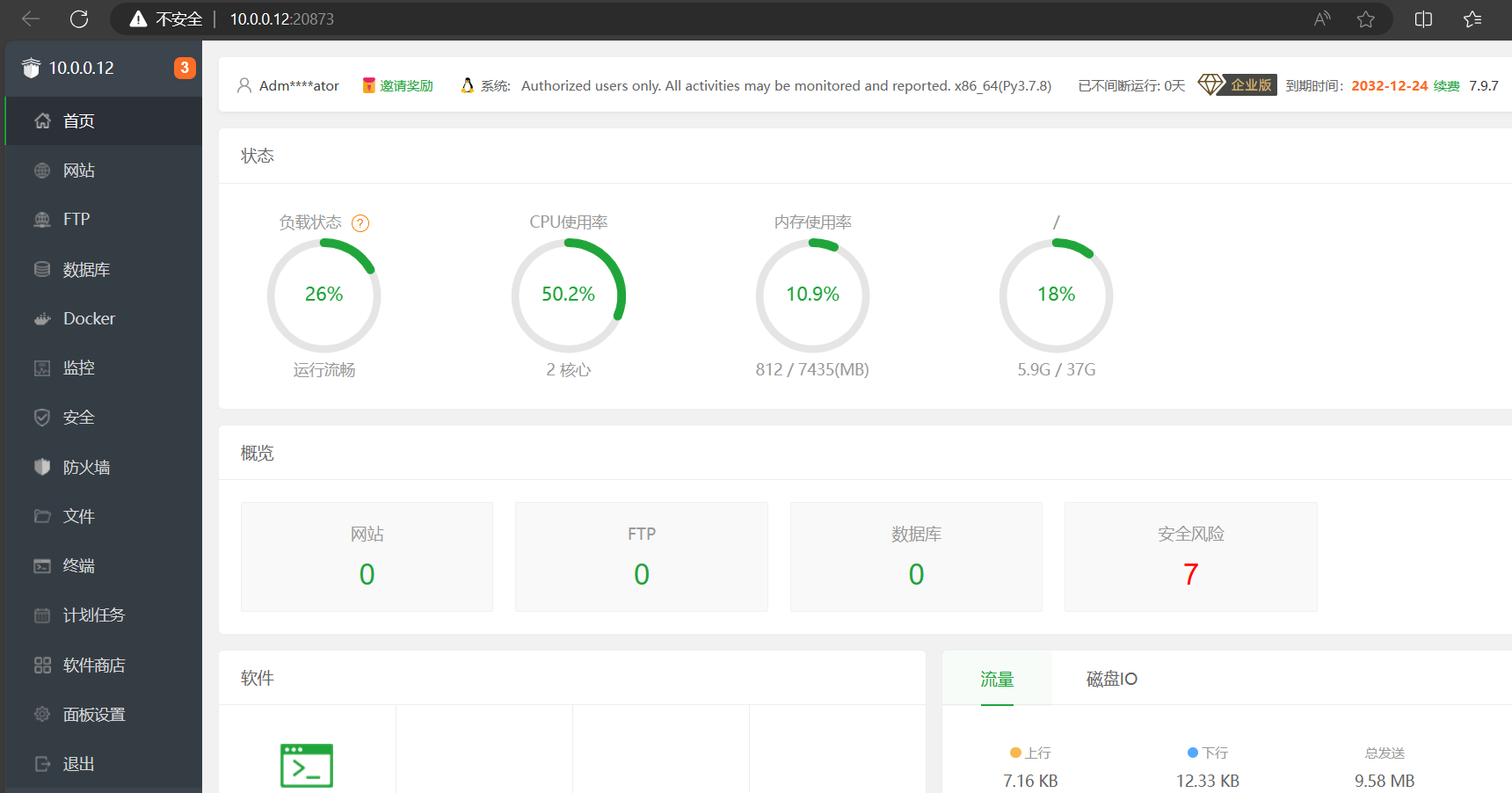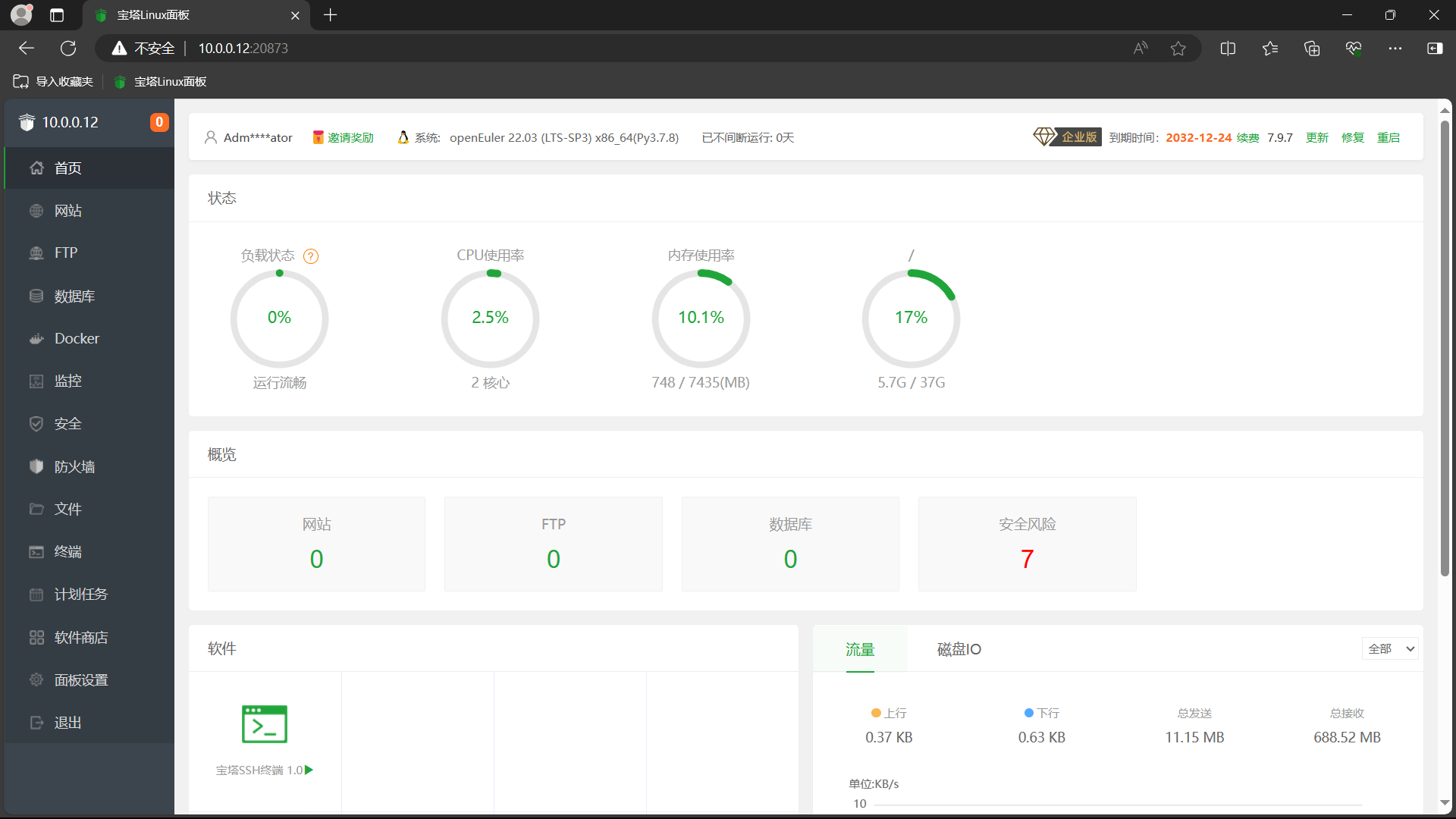开发机环境切换到openEuler,测试了一下宝塔的功能,除了因为发行版问题基本上mysql,nginx,php的安装都需要编译安装以外。其实就没什么问题了,甚至连docker都是正常的
但是系统版本的显示是有问题的,很令人难受。

通过f12,一步步推导出处理这部分的代码在/www/server/panel/class/public.py文件中
查看源代码,宝塔这里的检测看得出来是改了好几版了……太多的if else嵌套了
def get_os_version():
'''
@name 取操作系统版本
@author hwliang<2021-08-07>
@return string
'''
p_file = '/etc/.productinfo'
if os.path.exists(p_file):
s_tmp = readFile(p_file).split("\n")
if s_tmp[0].find('Kylin') != -1 and len(s_tmp) > 1:
version = s_tmp[0] + ' ' + s_tmp[1].split('/')[0].strip()
else:
version = readFile('/etc/redhat-release')
if not version:
version = readFile('/etc/issue').strip().split("\n")[0].replace('\\n','').replace('\l','').strip()
else:
version = version.replace('release ','').replace('Linux','').replace('(Core)','').strip()
v_info = sys.version_info
try:
version = "{} {}(Py{}.{}.{})".format(version,os.uname().machine,v_info.major,v_info.minor,v_info.micro)
except:
version = "{} (Py{}.{}.{})".format(version,v_info.major,v_info.minor,v_info.micro)
return xsssec(version)通过阅读源代码,发现如果没有检测到/etc/.productinfo和/etc/redhat-release,就转用/etc/issue,但是openEuler这里的/etc/issue文件写的是:
[muwinds@localhost ~]$ cat /etc/issue
Authorized users only. All activities may be monitored and reported.何况这种检测方法太过狭隘了。
发现宝塔在这个文件导入了os包,可以用os_popen的方法使用系统命令查看更为完整的/etc/os-release文件
[muwinds@localhost ~]$ cat /etc/os-release
NAME="openEuler"
VERSION="22.03 (LTS-SP3)"
ID="openEuler"
VERSION_ID="22.03"
PRETTY_NAME="openEuler 22.03 (LTS-SP3)"
ANSI_COLOR="0;31"我们可以尝试取PRETTY_NAME所在的行数,通过得到的行数用sed命令取到数据,并去掉引号和PRETTY_NAME=这两个字符
试一下:
import os
fp = open("/etc/os-release","r")
f_body = fp.read()
find_prettyname = f_body.find('PRETTY_NAME')
line_prettyname = f_body[:find_prettyname].count('\n')+1
version =os.popen('sed -n {}p {}'.format(line_prettyname, '/etc/os-release')).read().replace('"','').replace('PRETTY_NAME=','')
效果显著
试着导入宝塔,如果不报错并且能正常显示说明没啥问题:

没问题!
文章评论